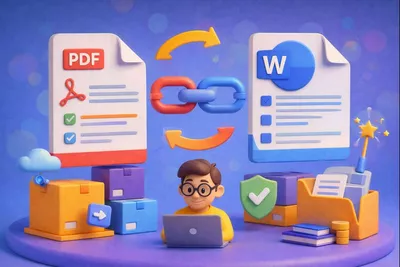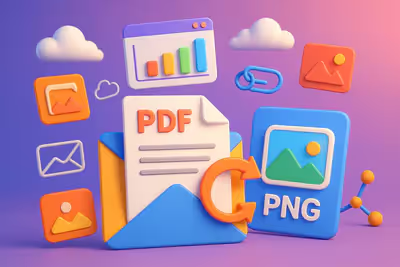What is Constant Contact?
Constant Contact has been around for a long time and offers its users all the basic features they expect from a great email marketing service.

You can also upgrade or downgrade your account based on your specific needs at any time, which means you only pay for what you use.
With the ability to create emails that are optimized to be read on mobile phones, you can ensure that customers can open and read your emails while on the go.
What is ActiveCampaign?
An included sales CRM system that comes with ActiveCampaign helps its users better understand their marketing efforts and segment their customer base to send more targeted emails.

This can help improve your email open and click rates, causing more customers to take action as a result of your email marketing campaigns.
The platform also has an anti-spam policy that guarantees that your emails will be delivered to the recipients' inboxes and not get caught in spam filters.
This can be valuable, especially if your email marketing campaigns are time sensitive.
Various integrations can make life easier for those using this platform, including the ability to include chatbot automation when someone performs specific actions (we'll come back to that).
You can also use SMS marketing to reach your customers personally.
One of the benefits of ActiveCampaign (compared to Constant Contact) is that it allows you to create marketing automation using a visual interface.
This feature is ideal for those who want to create more complex email marketing sequences without having to learn to code.
Features: Constant Contact vs. ActiveCampaign
Now that we've had a quick overview of each service, let's take a closer look at the features they offer.
1. List Management
With Constant Contact, managing your email list is relatively easy.

For good contact management, you can copy and paste multiple contacts simultaneously or even import them from sources like Google Sheets, Excel, etc.
This ensures that your list is always up to date.
Thanks to the various integrations with e-commerce platforms, you can also import your contacts from the software of your choice, including WooCommerce, Big Commerce, Shopify, etc.
Start with Constant Contact.
On the other hand, ActiveCampaign also offers an easy way to import and manage your list.
ActiveCampaign is great in this regard because it offers a lot of features.
One of the most remarkable is the ability to clean up your list and ensure that all contacts are valid.
This is essential to maintain a high level of deliverability.
You can also segment your list based on a variety of criteria such as location, purchase history, and more — all of which can be extremely useful for sending targeted emails.
This makes it much easier to improve your open and click rates.
Like Constant Contact, ActiveCampaign also offers various app integrations to import your contacts from multiple platforms like Salesforce, Hubspot, and more.
2. Email design and templates
From the start, Constant Contact offers no less than 250 templates that you can use to personalize and send emails to your list.

A feature called “Brand Templates” has also recently been introduced. It allows artificial intelligence to analyze your website and create a model based on the colors and design of your site.
This makes it much easier to create a branded email because you don't have to start from scratch.
On the other hand, ActiveCampaign has over 150 templates that you can use for your email marketing.
While that's less than what comes with Constant Contact, the good news is that you can use the code in the email builder to create an email template that looks exactly like what you want.
This can be extremely useful for those who want total control over the design of their emails.
Because of this, ActiveCampaign has a slight edge when it comes to design and templates, allowing you to fully personalize your emails.
Get started with ActiveCampaign for free.
3. Emailing campaigns
Constant Contact allows you to create email campaigns from a single interface.
This includes your emails, social media posts, landing page templates, and anything else you may need to promote your business.
When it comes to ActiveCampaign, its campaigns are divided into six types.
These are the following items:
- Standard
- Autoresponder
- RSS triggered
- Split tests
- Automated
- Based on the date.
I like the way they're divided because it makes it easier to create the type of campaign that suits your needs.
For example, if you want to create a campaign to be sent on a specific date (like a sale or a webinar), use the date-based campaign.
Both platforms make it easy to create and send email campaigns; however, I think ActiveCampaign has the edge here because the campaigns are much better divided and easy to understand.
4. Create your emails
Thanks to a drag-and-drop system, Constant Contact makes it easy to create emails from a template.
You can add images, text, and links without worrying about the code.
An interesting concept when using Constant Contact is that you can include predefined elements and blocks to send with your emails.
These include things like polls, coupons, donations, and more.
ActiveCampaign offers similar functionality and makes it easy to use these blocks in your emails.
One thing to note is that you can't use a free email provider to send emails with ActiveCampaign.
While this may seem like an inconvenience, they do this to reduce the risk of your emails being sent as spam.
I think this is a fair compromise because it improves deliverability rates, which is what marketers want when sending an email.
5. Creating an automation flow
Email marketing automation allows you to automate specific tasks in order to save time and efficiency.
Constant Contact offers users two types of automation features that they can create.
We then speak of single-stage automation and multi-stage automation.
The first covers welcome emails, birthday emails, and birthday templates.
This solution is ideal for people who want to automate their email marketing, but don't need anything too complicated.
At the same time, this may not be enough for those who run a large business.
In this case, Constant Contact allows you to use multi-stage automation tools, which can be triggered when a previous action occurs.
For example, when someone opens an email, it can trigger email automation that sends a follow-up message to the recipient.
This can be extremely useful for sales teams, as it allows them to maintain leads and increase their chances of closing a sale without lifting a finger.
Triggers include a contact clicking on one of the links in an email or making their first purchase.
What's not good about this workflow automation is that there's no visual interface that comes with Constant Contact.
You'll need to go through a step-by-step process to create your automation, which can be quite tedious.
ActiveCampaign is a beast when it comes to automation.

With over 100 automation models pre-included in the package, it's a great way to get started.
Models can be used for e-commerce, lead capture, and customer acquisition.
All of these are essential for small and large businesses to increase sales and revenue.
You can also combine email marketing with SMS marketing (using automation features) to create powerful marketing campaigns that are sure to convert.

While you have all the templates to work with, you can also choose to create your automation flows from scratch if you want to be creative.
The automation generator is very user-friendly and easy to use.
6. Reporting
Constant Contact provides the essential analytics you need to ensure that your campaigns are performing well.
You can see the number of emails delivered, bounces, unsubscriptions, and more.
While the system provides information about the performance of your campaign, there's nothing to be thrilled about, as these reporting functions are expected from any email platform.
ActiveCampiaGN takes reporting to the next level by providing you with a wide range of analytics that you can use to improve your campaigns.
Sales performance can also be measured using the included CRM.

Through various integrations with e-commerce platforms, you can get more advanced reports that can help you understand where your sales are coming from.
You can also track things like how much revenue is generated from each email you send.
This is critical information because it allows you to make decisions based on data - rather than assumptions.
7. Deliverability
Constant Contact and ActiveCampaign both use DKIM authentication to encrypt emails and prevent them from going to spam.
It is an authentication method used by the most successful email service providers.
It helps you get your emails delivered and delivered to your subscribers' main inbox.
As for deliverability, it's good to note that both platforms are against spamming when sending emails.
As such, they have implemented stringent policies to prevent their users from spamming people.
You need to make sure that you're using high-quality content and that you're not just trying to oversell in the emails you send.
Constant Contact seems to be the stricter of the two, allowing only one email out of 1000 to be marked as spam.
If this deadline has passed, the team will review your account and see if you're sending spam to your list.
ActiveCampaign is not as strict; however, they say they are against spamming, and they have a similar policy where if you exceed a certain number of spam complaints, your account will be reviewed.
Another remark in this area concerns the sending of emails containing information about affiliate marketing.
Constant Contact is anti-affiliate marketing, which means you can't send emails that contain affiliate marketing information.
ActiveCampaign, on the other hand, is more forgiving and allows you to send emails with affiliate marketing information - but that's more of an exception than the rule.
This means that you can't just send emails promoting an affiliate product, but you can only do so if the product is relevant to the content of your email.
A final note on deliverability is that ActiveCampaign allows you to buy a dedicated I.P. address.
This allows you to increase the chances of your email being delivered to the main inbox.
A dedicated IP address is an address that is not shared with other users.
This means that there is no chance of another user doing anything that could blacklist the I.P. address, affecting your delivery capacity.
Buying a dedicated IP address from ActiveCampaign will cost you additional monthly fees, but if your business depends on email marketing to generate revenue, it's well worth the investment.
That's just not possible with Constant Contact.
8. Split tests (A/B tests)
Split testing on Constant Contact is quite limited because you can only send different subject lines to different segments of your list.

You can't test anything else, like the content of the email or the call to action.
ActiveCampaign, on the other hand, allows you to perform split testing of up to five different aspects of your email.
This is extremely powerful because it allows you to find the perfect combination that delivers the best results for your business.
The only downside is that setting up split testing with ActiveCampaign can be time-consuming, as you need to create multiple versions of your email.
However, depending on the importance of emails in your business, this may be the best time to optimize your content.
9. Landing page creator
The landing page creator is an essential aspect of email marketing software.
The right landing page builder can save you a lot of money and time because you don't have to pay for separate landing page software or hire a designer to create one.
With Constant Contact, you can easily create landing pages that can be used to capture leads or sell products.

The process is easy and you can create a landing page in just a few minutes.
You can also use the Facebook lead ads integration to capture leads from Facebook and send them directly to your Constant Contact account.

Get started with ActiveCampaign for free
The downside in this situation is that the design is limited, since you can only change and customize the background color and font styles.
If you want to have more control over the design of your landing pages, it's best to use landing page software in conjunction with Constant Contact.
With ActiveCampaign, you can create signup forms using their landing page builder.
While this feature isn't available in all pricing plans, if you have a plan that takes care of it, you'll be able to choose from no less than 50 different models, which are generally amazing and look very professional.
With drag-and-drop features that allow you to use different content blocks to create the perfect landing page for your business, you can create the right page in just a few minutes.
10. Pricing

Constant Contact pricing includes a basic package called Core at $9.99 per month.
Then, the Plus plan starts at $45 per month and includes additional elements like conversion reports, automated emails, and various marketing tools for list growth.
If you need more and an integrated CRM platform, consider the Sales Accelerator package, which starts at $449 per month.

On the other hand, ActiveCampaign's pricing is more incremental, meaning it's better for businesses of all sizes — from the smallest to the biggest.
The Lite plan costs $29 per month and allows you to manage 1000 contacts.
The second plan, called Plus, costs $49 per month, while the third most popular plan, Professional, costs $149 per month.
These plans (and prices) are based on a maximum of 1000 contacts in your contact list.
The more contacts you have, the higher the fees will be.
There is also an Enterprise plan for those who want more advanced features.
For pricing information for this plan, you'll need to speak to their sales team.
The good news is that both platforms offer a free trial, allowing you to test their free plan and features and see what works best for your business before you commit to a paid plan.
11. Customer support
Constant Contact customer support hours vary depending on where you are in the world.
General customer support for the United States and Canada is available Monday to Friday from 10:00 a.m. to 6:00 p.m. ET.
You can also get help by phone, on Twitter, or through their community.
For ActiveCampaign, live chat is available as follows:
- Monday to Thursday 9:00 a.m. to 11:00 p.m., CST
- Friday 9:00 a.m. to 4:30 p.m. CST
It's good to know that Lite, Plus, Professional, and Enterprise plan customers get live and email support.
Business plans also benefit from telephone support.
As an ActiveCampaign customer, you also benefit from a broad knowledge base and various additional training courses.

FAQs
Are email marketing tools good for beginners?
Many of the tools are intuitive and easy to use, making them perfect for beginners.
You don't need technical skills or experience to get started with email marketing.
What are the most important characteristics when choosing an email marketing tool?
It's important to have an email editor that's easy to use and can create beautiful, responsive emails.
Tutorials, training, phone support, and live chat support are important features to consider, especially if you're a beginner.
Lead scoring and automation are also great features, as they can save you a lot of time in the long run.
Finally, it is also essential to take into account the real-time reports that are added to the tool's functionalities.
What are the other best email marketing platforms to consider?
Email marketing tools like Getresponse, Sendinblue, Convertkit, and Drip are all digital marketing tools that help manage emails and other aspects of online marketing.
Can Zapier be used to automate email marketing tasks?
Yes, you can use Zapier to automate email marketing tasks.
Creating a customizable workflow that works with your email marketing tool can save you time.
For example, if you're using WordPress, you can automatically send a new blog post as email content to your list using Zapier.
It's also possible to automate a pop-up notification that appears when someone takes an action on your website (like signing up for your newsletter or making a purchase) using Zapier.
Summary.
When it comes to ActiveCampaign and Constant Contact, both platforms are great options for email marketing.
However, when I consider all the factors, there can only be one winner, and that's ActiveCampaign.
With all of the essential features included and high overall deliverability, ActiveCampaign is one of the best email marketing options right now.
Given its ease of use, it's no wonder ActiveCampaign is one of the most popular email marketing platforms today.
Get started with ActiveCampaign for free.
However, if you still want to try Constant Contact to see if it's right for your business, you can check out the link below.
More information: Want to see how the most popular email marketing software stacks up against each other?
Here are a few criticisms to consider:
Additionally, if you want to learn how cold email can help you grow your business, check out my guide on the best cold emailing software to help you reach future customers without spending a fortune.
.svg)




